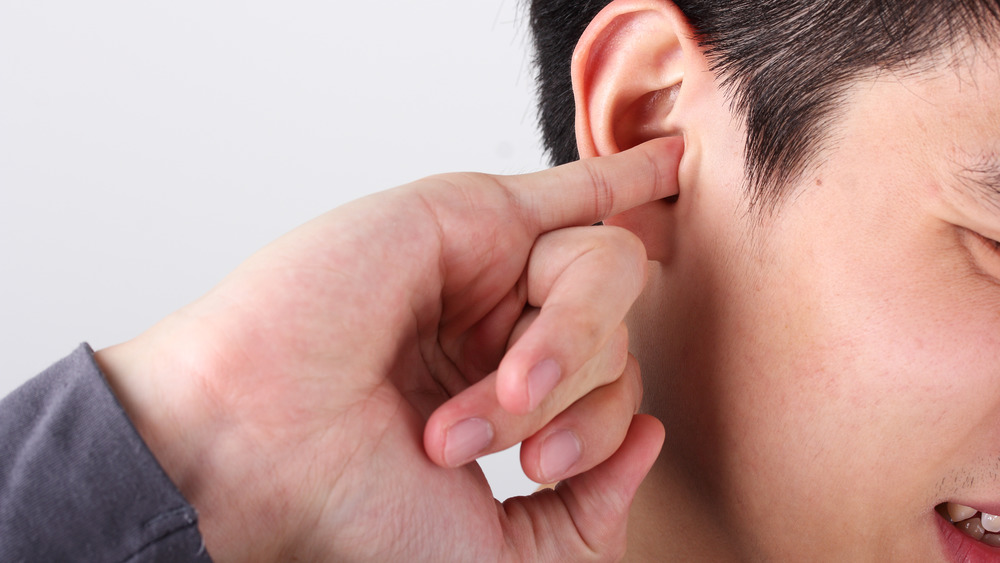What It Really Means When Your Ear Crackles
If you've ever emerged from a swim with the uncomfortable feeling of water in your ears, you're probably familiar with that wet crackling sound you may hear when trying to unclog it with a finger or towel. Sometimes accompanied with pain, muffled hearing, or a heaviness in the ear, the source of the crackling can often be traced back to our ear's eustachian tubes (via Healthline). The eustachian tube, also referred to as the "auditory tube," protects our middle ear from germs and potential infection (via Verywell Health). Additionally, these small tubes are responsible for the draining of fluids, as well as maintaining equal air pressure surrounding our eardrum. Though our eustachian tubes are generally well equipped at keeping these passageways clear, we are all susceptible to the occasional blockage.
Whether it's due to allergies, illness, or a buildup of earwax, all are instances in which our eustachian tubes may become blocked (via Medical News Today). To protect our inner ear, our eustachian tubes generally remain closed. Natural body functions, such as swallowing, force these tubes to open. However, if a tube is blocked, it may not be opening and closing properly, resulting in potential discomfort. When attempting to clear these passageways, that's when we experience the sounds of popping, or a static-like crackling. According to Duncan-Nulph Hearing Associates, "The crackling sound happens when these mucus-lined passageways open up, letting air and fluid to circulate and relieving the pressure in your ears."
Prevent the buildup of earwax with simple at-home solutions
So how can we help keep these passageways clear? Fortunately, there are some simple at-home or over-the-counter fixes that can help improve an ear blockage. Experts at Medical News Today suggest the use of a saltwater nasal flush to help clear sinuses. This can be especially helpful if you find yourself experiencing congestion due to a cold. Similarly, picking up an over-the-counter decongestant from your local pharmacy may also be helpful to minimize mucus buildup in your ears, nose, and throat. In the event of ongoing pain or continuously emerging symptoms, please consult with a doctor for further treatment options.
We can also do our part to maintain ear health by keeping up with earwax hygiene. Though the body naturally takes care of earwax on its own, some blockages are due to continued buildup. In this case, experts suggest squeezing a few drops of mineral oil or baby oil directly into the ear canal to help soften hardened wax. Lastly, consider doing away with the ear swabbing routine after a hot shower, as cotton swabs can actually have the opposite effect and can pack earwax more firmly together. Remember, the eustachian tubes are responsible for natural drainage, so chances are, your ears already have it covered.


